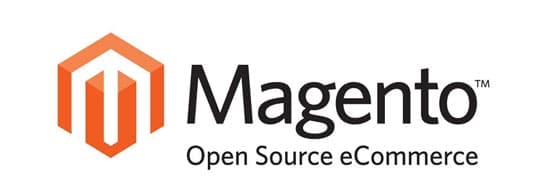Article Note: This article “13 Best Website Builders for Small Businesses” was first published on 27th June 2016. We have last updated this article on 13th October 2019 with fresh information.
Website building doesn’t necessarily have to be about complicated codes and programming skills. A string of web tools is designed for a wider number of users willing to create their own websites – well, without really the help of codes or prior experience in web designing. There is no dearth of such website builders aimed at helping you bolster your online presence. A website can well be regarded as the face of your online presence. What does it take to convert your website into a virtual money-spinner? The immediate answer to this question would be professional web design. Can website builders be regarded as equally effective as well? Can they help you create duly professional websites?
In the twenty-first century, most enterprises would be lost without a website. Even in the cases when a website is not needed to provide services such as online bookings, online shopping, payment processing or updating customers on important information, web platforms are still essential in building or improving brand recognition. A recent report from the Local Search Association found that as many as 63% of Americans primarily use company websites to search for and engage with businesses.
Companies that either do not have a website or have a website of low quality, are losing business in a market that is increasingly reliant on web services. Web platforms need to be immediately engaging in terms of design and language, as well as being search engine optimized to generate the most traffic. In addition to this, with consumers spending an average of over three hours a day on mobile devices, it is also essential that all websites are fully mobile responsive.
What to look for in a website builder?

If you are prudent enough to conduct substantial research on the modern web tools, you will definitely come across a plethora of website builders that can help you create super-refined pages. The key is to understand which one of these names will comply with your needs the best and then choose in accordance. This particular primer will perhaps be of help.
Each of the website builder platforms offers different services, but which is the most suitable for your specific needs? Here are some points to consider:
- Do you need a free platform, or are you prepared to pay for extra services, such as storage space, extra bandwidth, or extra features?
- Are you looking for a platform that is specific to your own niche, such as online shopping?
- What kind of functionality do you need (such as online payments or user registration)?
- How much time and effort do you have to spend on the project?
- How much control do you want to have over the creation of the website?
- Do you want to use templates or themes with pleasing, ready-made designs?
- Would you like to have customer support and a wide community to rely on?
Reference: Karol K has written an article at ecommerce-platforms.com to provide in-depth review and tips on many eCommerce website builders. This is worth reading.
1. WordPress

Leading the pack is WordPress, backed by hundreds of themes and plugins. Both it’s free and paid versions will enable you to create highly functional web pages. WordPress, in fact, is known to steer your marketing efforts in a way that no other website builder does. Those looking to shore up their brand-building strategies with the help of a blog automatically turn to WordPress. There are several hosting service providers offering automated install tools that enable you to manage your site through its admin interface. If you are ready to explore the merits of WordPress to steer your entrepreneurial ambitions, do consider joining the wide community of WordPress developers who can bail you out of confusion (if any) at several junctures.
WordPress has by far the largest share of the CMS market and is used for 34.6 percent of all websites. It can be used to create multimedia websites and blogs for all purposes. There are two platforms, WordPress.com, which is a hosted service, and WordPress.org, where users can download the software to use on their own web hosting platforms.
The use of WordPress is simple for the beginner, and there is a wide range of plugins, extensions, tools, integrations, designs, and themes, as well as extensive third parties that work closely with WordPress. For the more experienced user, the platform also offers a good deal of options. However, WordPress does lack a built-in drag-and-drop tool, and some basic coding ability is at times needed.
For SEO experts, the power of WordPress to channelize marketing efforts remains unassailable. It has been regarded as a dominant tool shaping professional web designers’ careers for long. Needless to say, it has emerged as the most sellable and reliable platform in recent times.
2. Joomla!

With two and a half million installations across the world, Joomla! takes second place in the CMS market. Users are able to access the backend of websites to manage content, and the platform is more flexible than other website builders. Though it is slightly technical for the beginner, users do not need to be developers to understand and use it in a short space of time.
Joomla! has an easily manageable content and structure. It has more well-organized options for user management and custom post types. It has more options for user management, and it offers multilingual support without the need for a plugin or extension. Joomla! also has e-commerce extensions to adapt to the online shopping facility.
3. Wix

Wix is a leading website builder that features a drag-and-drop builder, email marketing, contact forms, mobile responsiveness, a simple blog editor, and broad-spanning community forums for help getting started. It utilizes Artificial Design Intelligence (ADI) to make website building quicker and easier, and it has ready-made templates and layouts that are included in the free plan. These are designed to meet various business niches.
Alex Viall, the Founder of Mustard IT, talked about Wix in his recent interview. In the time of talking of the advantages and disadvantages of Wix he mentioned, “Wix is well suited to beginners, it has a free plan for those with limited funds, as well as paid plans with more storage, features, and unlimited bandwidth. But to developers, it may seem limited in control and advanced features.”
4. Strikingly
 Freelancers, beginners, or those looking for personal sites should turn to Strikingly. If you’re a fan of understated refinement of sites with single pages then Strikingly should ideally rank high on your list of preferences. Enabling you to create visually rich pages, Strikingly requires little maintenance. It doesn’t really permit you to alter the template or export the code at a later stage if you want to. However, it does merit inclusion in this list because of the very simple fact it allows users with zero budget to create such visually appealing pages.
Freelancers, beginners, or those looking for personal sites should turn to Strikingly. If you’re a fan of understated refinement of sites with single pages then Strikingly should ideally rank high on your list of preferences. Enabling you to create visually rich pages, Strikingly requires little maintenance. It doesn’t really permit you to alter the template or export the code at a later stage if you want to. However, it does merit inclusion in this list because of the very simple fact it allows users with zero budget to create such visually appealing pages.
5. Shopify
 It’s not a typical website builder. It rather targets those looking forward to creating online stores. Shopify is a virtual treasure trove of apps and supplementary tools that facilitate inventory management, security, and customization of the store. The platform has a strong customer support team who can help you with any type of customization. What more? Customers have access to more than seventy payment systems in different currencies. Those looking to strengthen their online stores must consider turning to Shopify for help.
It’s not a typical website builder. It rather targets those looking forward to creating online stores. Shopify is a virtual treasure trove of apps and supplementary tools that facilitate inventory management, security, and customization of the store. The platform has a strong customer support team who can help you with any type of customization. What more? Customers have access to more than seventy payment systems in different currencies. Those looking to strengthen their online stores must consider turning to Shopify for help.
You may like: Wish to Build a New Website? Check Our Recommendation First.
6. Squarespace

Similar to WordPress, Squarespace was an early starter in the game, dating back to 2004. It is different from other website builders in that it is not open source and tools can only be created by in-house developers. It is subscription-based, user-friendly, and simple for beginners.
The site offers a wide range of themes with detailed designs, fonts, and images, and it is easy to switch between themes without losing content. It also comes with a commerce platform for building and managing online stores. However, the platform lacks an autosave, a multilingual function, and is not best suited to larger websites.
Even professional web designers have unequivocally vouched for their qualities. Squarespace brings to you the best virtues of elegance and professionalism. While you can end up telling a visual story with a responsive site, you can also add custom PayPal buttons if needed. You can further facilitate the E-commerce functions by Stripe. It also has a built-in blogging platform that can only accommodate a limited number of posts. One attribute which differentiates SquareSpace from other website builders is the lack of free plans. It has no free plans and free hosting facilities. This implies that you need to buy your own hosting and domain with each plan.
The low cost, low maintenance Squarespace is perfect for those who have just forayed into the eCommerce space and are in the process of experimenting with online stores.
7. Drupal

Drupal is a leading CMS platform that has 1.37 million users. It is well-known for its high level of security. It can allow for the creation of multilingual sites without the need for any extensions or plugins.
Drupal is a great choice for creating large, complex web platforms with a range of content types, and it scales well to meet the needs of expanding startups. Security may also be an issue for smaller businesses, and it also offers support and a dedicated community. Drupal may not be the best choice for beginners, as it requires some basic coding and has a steep learning curve.
8. Ucraft

While not a new player in the field of website builders, Ucraft gained a lot of popularity and awareness as of late. What makes it different is that it offers the users a few unusual but welcomed features that are worth mentioning. The first is the fact that Ucraft users can connect their domains free and enjoy all the benefits the platform has to offer. The free hosting on the Google Cloud makes Ucraft a worthy competitor for other more established builders and CMS platforms.
Another opportunity worthy of seizing is the SSL encryption for the website users want to create. You will not find many website builders offering this type of benefit. For those concerned with cybersecurity, it is a significant win.
Other than that, Ucraft is, like many of his peers, a drag-and-drop type of website builder that requires no coding and programming knowledge. Besides the beautiful and fully mobile responsive templates, the builder lets users build an e-commerce site (with 70+ popular payment and shipping methods), highly converting post-click landing pages, or well-crafted portfolios.
It provides a wide selection of SEO integrations, customer support tools and programs, a blogging platform, and a logo maker. All these elements are critical for SMEs and beginner entrepreneurs to get their wings in the business world.
9. Weebly

Weebly is a web hosting service and website builder that is specifically focused on e-commerce. It features a drag-and-drop builder, domain registration and web hosting, SEO management, online booking forms, and a wide selection of templates.
Weebly is easy to use for beginners; it provides everything to create online stores or stylish websites. The SEO guide gives enterprises a useful advantage, templates are customizable and comprehensive support is available. However, some may find there to be a lack of control and the drag-and-drop tool is slightly limited. Also, there is no restore option in case the site crashes, and no ADI tool for building sites based on user information.
10. Magento

Another CMS project with a special focus on e-commerce, Magento is a large and powerful platform that began through a search for stronger security. The site features SEO management, analytics and reporting, and returns management.
Magento is intuitive and flexible, you can edit the code when necessary and can customize the templates. It has a wide range of features, such as supporting multiple currencies, languages, and locations. It has a large community of users, and it is scalable. On the other hand, the paid versions are slightly expensive. It has a slow loading time, it only allows the use of a dedicated host. Also, product support is quite expensive.
11. Site123

An intuitive and easy-to-use website builder to develop the websites in three stages. First, choose the page type and design. Next, upload the content. And after that, publish the page, and the focus shifts to generating traffic. Site123 features include online booking tools, SEO management tools, pre-made templates, and free web hosting.
It provides a range of product integration tools that include plugins, analytics tools, advertising software, and e-commerce tools. On the downside, Site123 is slightly more expensive than its competitors, especially for self-hosting, and there is no way to edit code. It has somewhat very limited design features. Also, you cannot be able to change the templates after the publication of the sites.
12. Typo3

Typo3 is a powerful CMS platform that is constantly kept up to date by its developers. Its aim is enterprises of all sizes. It has a wide range of features that include a website creation wizard, login controls, smart content management, and multilingual and multi-site functionalities.
Typo3 is scalable and it has over a thousand extensions, which allows users to build complex websites. It supports different types of content and it also allows for dynamic content. It has strong community support, which can be useful for beginners. However, it is otherwise difficult to learn and can prove quite challenging, even for those with more experience.
13. Jimdo

Jimdo advertises the claim that it is possible for users to create a website in just three minutes. It has two separate modes for website building that reflect the time available or experience. The Dolphin mode has a design assistant to make the job easier and quicker. The Creator mode gives users the chance to take more control and customize things.
This two-tiered structure provides for both beginners and experts, and it is also a global company that is completely multilingual. It is a free platform with optional upgrades, and it is possible to integrate some products. However, it’s not necessarily the best choice for those based in the US, due to payment restrictions.
You may also like: Essential Tips in 2019 for Improving Your Web Design.
Winding Up

With such a wide range of website builders currently on the market, one of the first items on the agenda for new businesses should be to decide on the best platform to use. Of course, this will depend on a number of factors, from functionality to available time and budget; but there is no doubt that a suitable CMS solution can be found. As always, adequate planning is important to ensure minimal backtracking will be required later. But now building a website is a simple task so we can more usefully spend our time driving growth.
The significance of acquainting yourself with the highlights of the leading website builders can never be undermined. How else do you expect to fulfill your needs? Being able to strike the right balance between features, costs, and needs is part of your learning curve.





